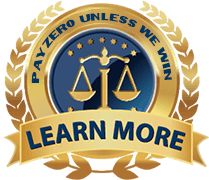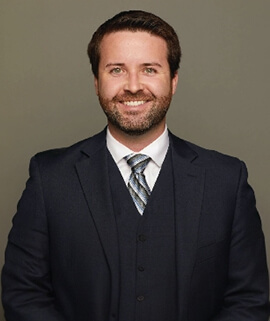Below is some of the most frequent and important questions that are asked by our clients. We have also provided a brief answer to those questions. Remember for a full understanding of the ramifications and legal consequences of a Chapter 13 bankruptcy contact us for a Free Consultation, (855) 339-8879
1. How does a Chapter 13 Bankruptcy Work?
Chapter 13 can be an effective solution for those who are unable to pay off there debts; and simply need more time in order to readjust their financial footing so that they are able to make their payments on their debts. Below are some of the steps of a Chapter 13 Bankruptcy process. Note for more detailed information contact Downtown LA Law Group for a free consultation with a skilled
Los Angeles Chapter 13 Bankruptcy Lawyer.
- A petition is filed, asking the court for relief under Chapter13
- An automatic stay is put into place informing your creditors of the Chapter 13 Bankruptcy
- A docket number is provided to you from the court
- 7 to 10 business days afterword you are usually required to file a Matrix with the court
- After submitting the Matrix a repayment plan is required in which you formulate a plan to pay off your creditors.
- The court may accept of reject the plan and creditors may voice their objections to the plan in court.
2. What are the advantages of a Chapter 13 versus a Chapter 7?
The advantage of a Chapter 13 instead of a Chapter 7 is that it may stop a foreclosure of a home or any other property from taking place during the reorganization Chapter 13 time period. A chapter 13 would also allow you to discharge debts that may not be dischargeable under a chapter 7.
3. Which debts a not dischargeable under a chapter 13
Debts that are discharged after the Chapter 13 reorganization plan are
- A debt that was not listed on the original filing of the Chapter 13 bankruptcy
- Child Support
- Certain Taxes, penalties, and fees that are owed to the federal or state government
- Student Loans
For a more comprehensively list contact our Downtown
LA Law Firm Bankruptcy Legal Center.
4. Is Chapter 13 the Rights Course of Action for me?
In many instances an individual does not have a choice but to file for a Chapter 13 if he seeks to file for bankruptcy protection. Traditionally those in the upper income do not have a choice but to file for a chapter 13 instead of a chapter 7. To determine if you have a choice in the matter contact us and we will evaluate your financial situation and determine whether you qualify for a chapter 13 or if you qualify for either a chapter 13 or a chapter 7 which course of action is the right one for you. Usually a Chapter 13 would make sense if you have steady income so that you are able with adequate time based on the Chapter 13 time period established by the court, to pay off your debts.
5. What are the qualifications needed to be eligible for a Chapter 13 filing?
The eligibility factors for a Chapter 13 can often be complex and complicated by a person financial and personal interest. Below is a list of some of the eligibility qualifications and restrictions placed on those who wish to file for a chapter 13 Bankruptcy.
- A Prior Bankruptcy may preclude you from filing a Chapter 13
- Businesses and other organization are not eligible under Bankruptcy Law to file under Chapter 13
- If your debts are to high you may be precluded from a Chapter13
6. What is the best method I can use so that the bankruptcy court will approve my proposed repayment plan?
The best way one can increase the chances that the court will approve his plan is to hire a qualified bankruptcy lawyer who is knowledgeable and skilled in bankruptcy law and court procedures. A qualified lawyer will also help you lower your debts as much as possible so as to lessen the detriment you may suffer during the repayment time period.
Repayment plans are often complex; particularly if a person has differing assets and different classes of debts. It is important that your plan is one that will be approve by the court. If you need an attorney to consult regarding your bankruptcy repayment plan feel free to contact us.
7. How many months do I have pay off the debt under a Chapter 13
The time period to pay off your debts is established by the court based on your repayment pan and creditors motions to alter the plan. The judge’s repayment plan should be based on your income over the life of the plan, and the size of the debt. Usually the court will grant a time period for repayment anywhere from 36 up to 60 months.
8. What if I cannot complete my plan in the time period set up by the bankruptcy court?
If you are under a Chapter 13 plan and believe you are not able to complete it in time it is important that you contact a bankruptcy lawyer for a consultation regarding your options. Below are some of the options which may be available to you based on specific characteristics of your bankruptcy and your financial situation.
- Right to dismiss your bankruptcy in court: if you do so all your prior liens and automatic stays against creditors are reinstated.
- Convert from a Chapter 13 to a Chapter 7
- Seek out a discharge as a result of financial hardship



















